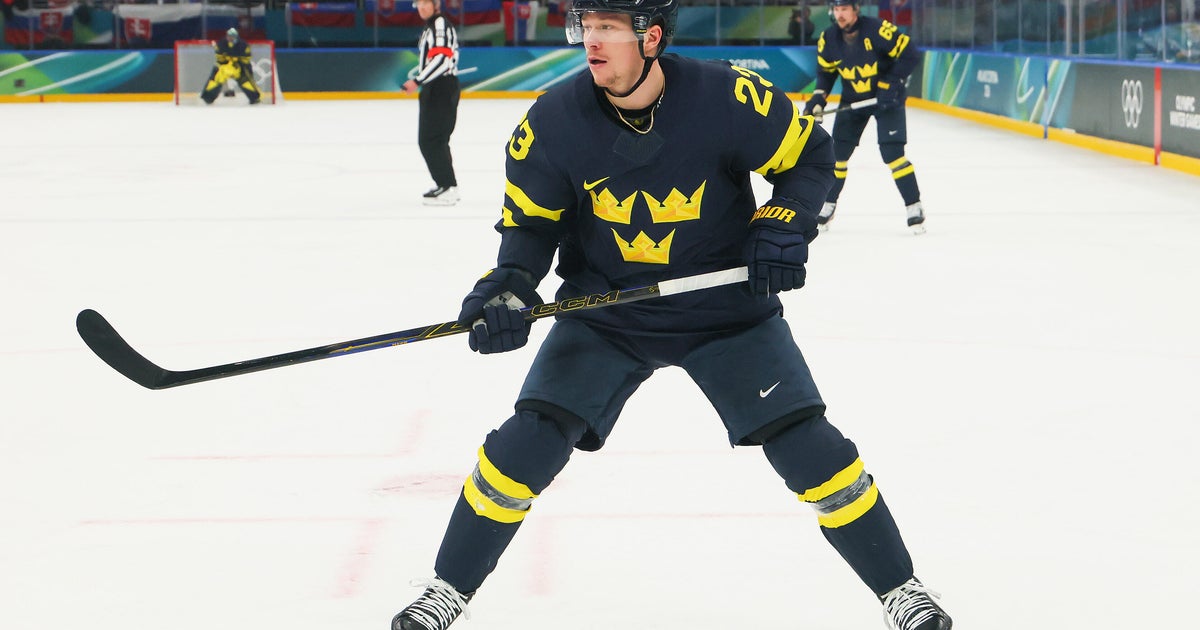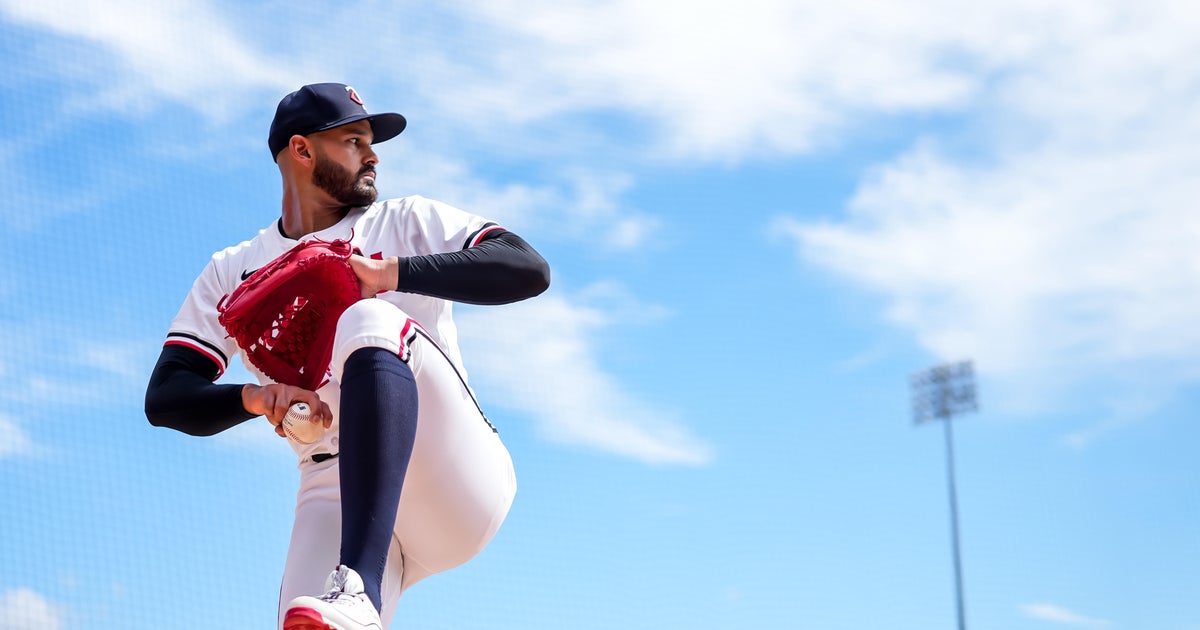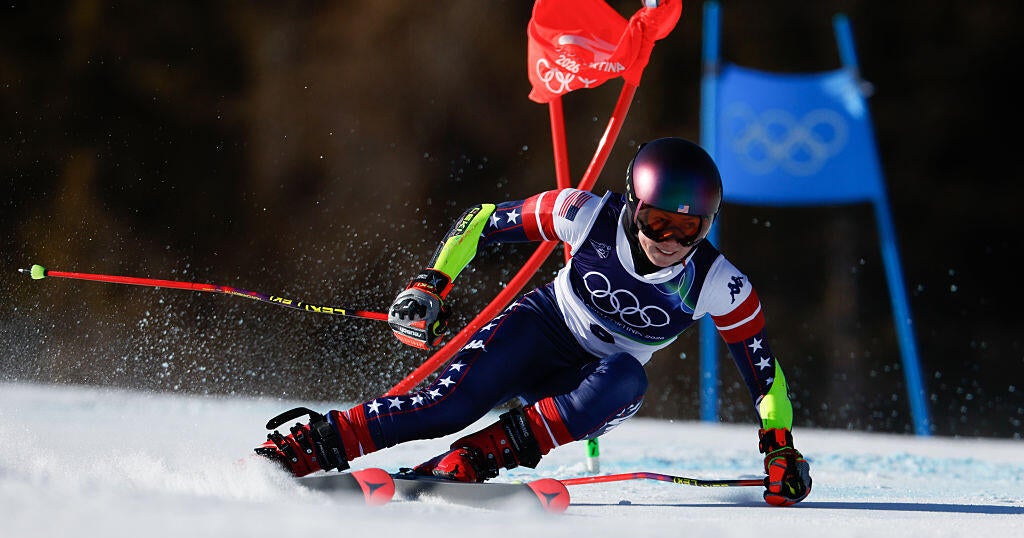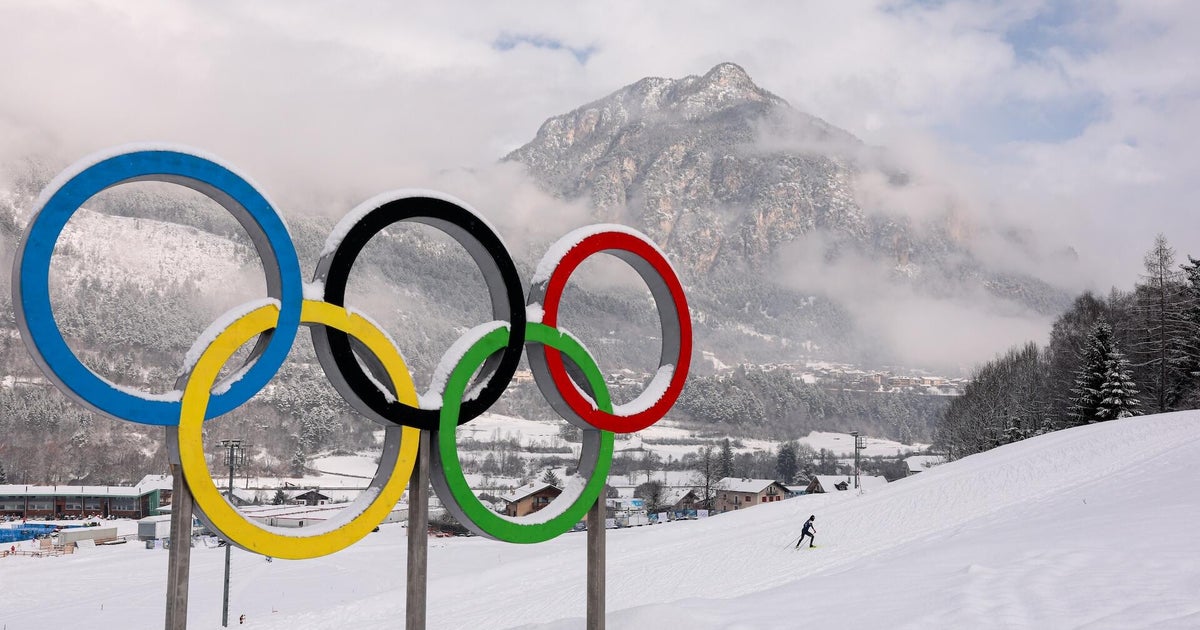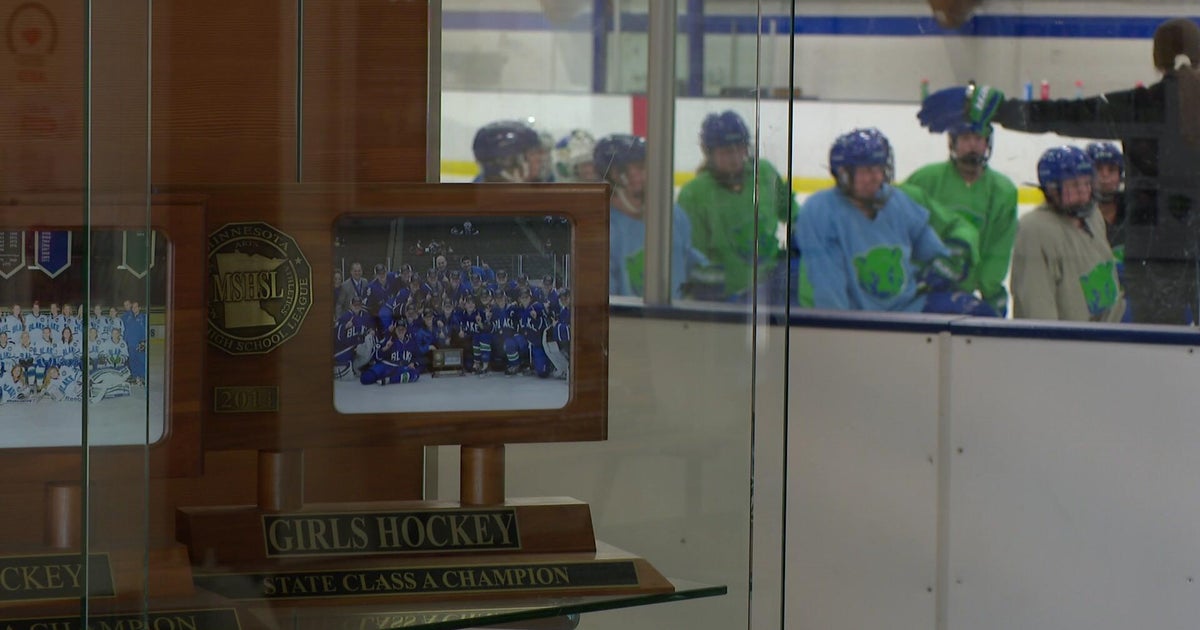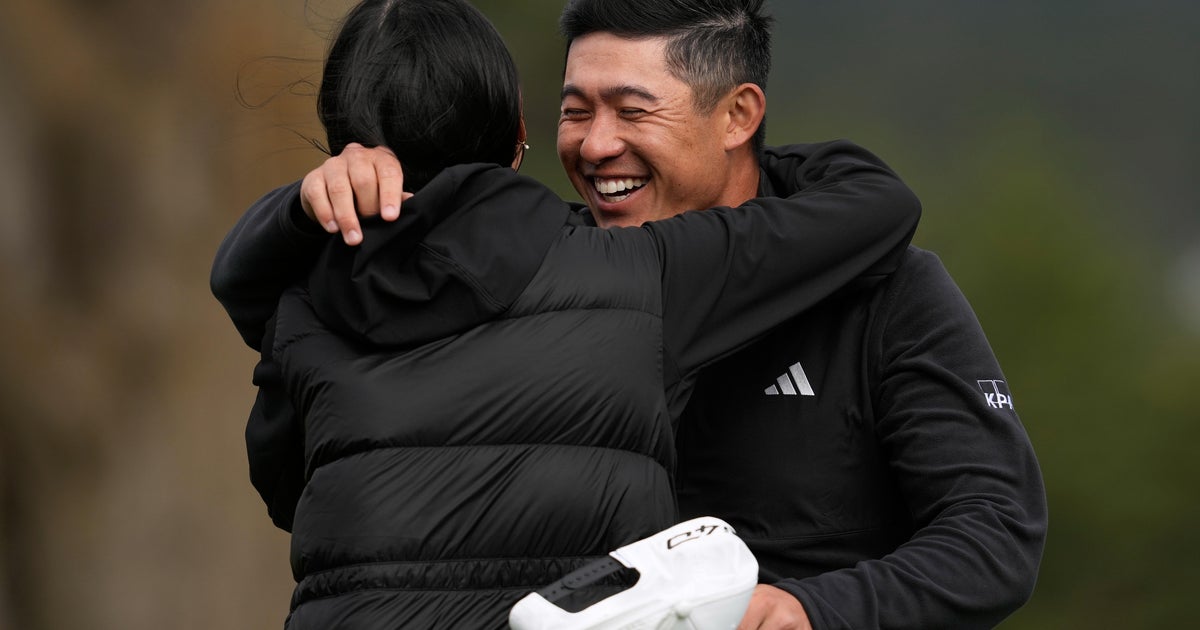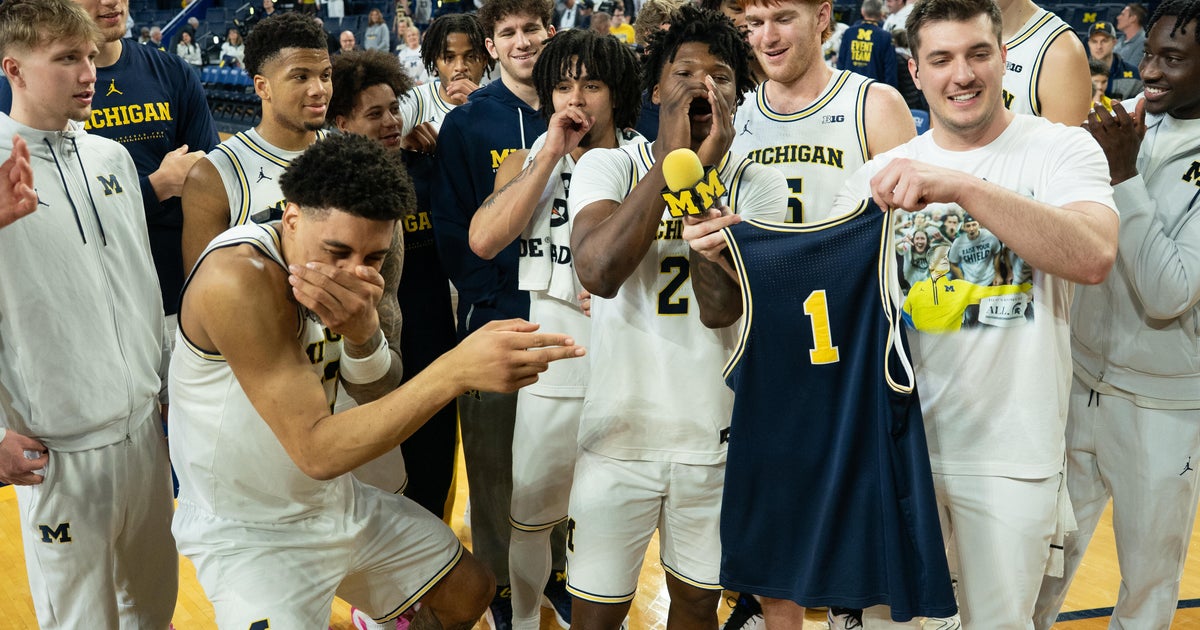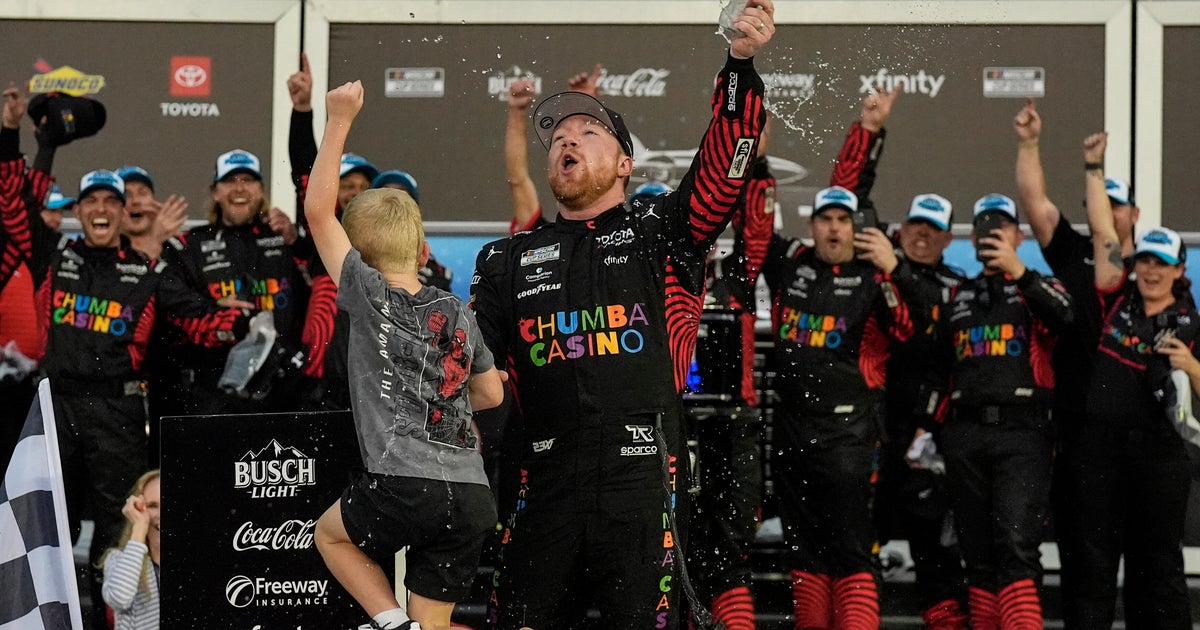Hardee Hopes His Elbow Is Ready For Olympics
AUSTIN (AP) - As the reigning world champion in the decathlon, Trey Hardee should figure as the big favorite at the London Olympics.
He would be if it weren't for a pinkish, 5-inch scar that curves around his right elbow.
Hardee had reconstructive surgery last September to repair a ligament he blew out while throwing the javelin at the World Championships last summer. The injury occurred on his final throw, a personal best that locked up his second straight world decathlon title.
Now Hardee is pushing the elbow through an accelerated rehabilitation process aimed at competing in the U.S. Olympic trials in June. He insists he'll be ready for the trials -- and the London games.
"At this point, (I) feel as good as I've ever felt," Hardee told The Associated Press during an interview Wednesday on the infield at the Texas Relays. "The confidence grows every week. It's as strong as it's ever going to get and now we just have to train it and take baby steps in the pole vault and the javelin to get it ready to compete."
Hardee, who trains in Austin, is entered in the long jump, discus and hurdles at the Texas Relays, the meet where he set the NCAA record in the decathlon for the University of Texas in 2006. He won't do a complete decathlon until the Olympic trials.
Hardee and his personal coach, University of Texas associate head coach Mario Sategna, say they're trying to cut the usual 12-month recovery period down to nine. They don't have a choice. Misfire at the Olympic trials and Hardee won't go to London.
Hardee doesn't seem worried that he won't make it.
"We're pushing it daily. ... We're not trying to test it every day, but we're trying to loosen it up," he said. "If I'm healthy and can pole vault and throw the javelin at 100 percent, I definitely consider myself the (Olympic) favorite because I haven't lost a decathlon in so long."
A couple of other Americans might have something to say about that.
Ashton Eaton finished second at the World Championships and has set world records in the heptathlon three years in a row. American Bryan Clay is the defending Olympic champion. Hardee dropped out of the Beijing Games after not clearing any heights in the pole vault, knocking him out of fourth place.
Hardee acknowledged the Olympic stage may have been too big for him in 2008.
"That was my first time out of the country. It was the first time I had flown on a plane for more than a couple of hours," Hardee said. "I had never been in a competition that was that tightly packed at the top with athletes as good or better than I was. ... I learned a lot. I thought I would just go in there and could win a medal."
Hardee took the lessons of that failure and won his first world championship in 2009.
Hardee initially had no idea how bad he hurt his elbow at the 2011 world championships. The U.S. team doctors at first told him the ligament was fine, perhaps because they couldn't feel it under all the muscle. So he wrapped the elbow at a 90-degree angle and ran the final event, the 1,500 meters, with his arm throbbing the entire way. Hardee told reporters afterward he had just "tweaked" the elbow.
"My elbow popped and I had a ton of pain running up and down my arm," Hardee says now.
Hardee returned to Texas a few days later and went to a clinic in San Antonio for tests. Doctors found the ulnar collateral ligament was completely detached from his elbow and had curled up toward his triceps.
"I actually fainted," Hardee said. "They told me, I stood up, walked outside and passed out. I was embarrassed."
Hardee called renowned sports surgeon Dr. James Andrews in Birmingham, Ala., to schedule Tommy John surgery. Andrews replaced the UCL with a tendon taken from Hardee's right forearm.
"It was surgery or never use the elbow again," Hardee said.
He was back on the track within a couple of weeks and has been so aggressive with his rehab that Andrews has told him to dial it back a couple of times. A decathlete, who has to perfect so many different events, is hard to plug into a recovery schedule after a surgery more typically done on pitchers or quarterbacks, Sategna said.
"When you take a decathlete, one of the best athletes in the world, he's kind of rewrote the book a little bit," Sategna said.
Hardee has concentrated on improving his running and jumping events to compensate for anything less than peak performance in the pole vault or javelin.
"If he does what he's supposed to in all the other events, he's not going to need a personal best in the javelin hopefully to make the Olympic team," Sategna said.
Now it's all about watching the calendar and staying ahead of it in getting ready for this summer.
"I can do a ton of stuff. I can throw a baseball 280 feet right now. I can bench press 340 pounds," Hardee said. "But put a javelin in my hand? There's a functionality that just takes time."
Time that is in short supply.
(© Copyright 2012 The Associated Press. All Rights Reserved. This material may not be published, broadcast, rewritten or redistributed.)
Also Check Out:
